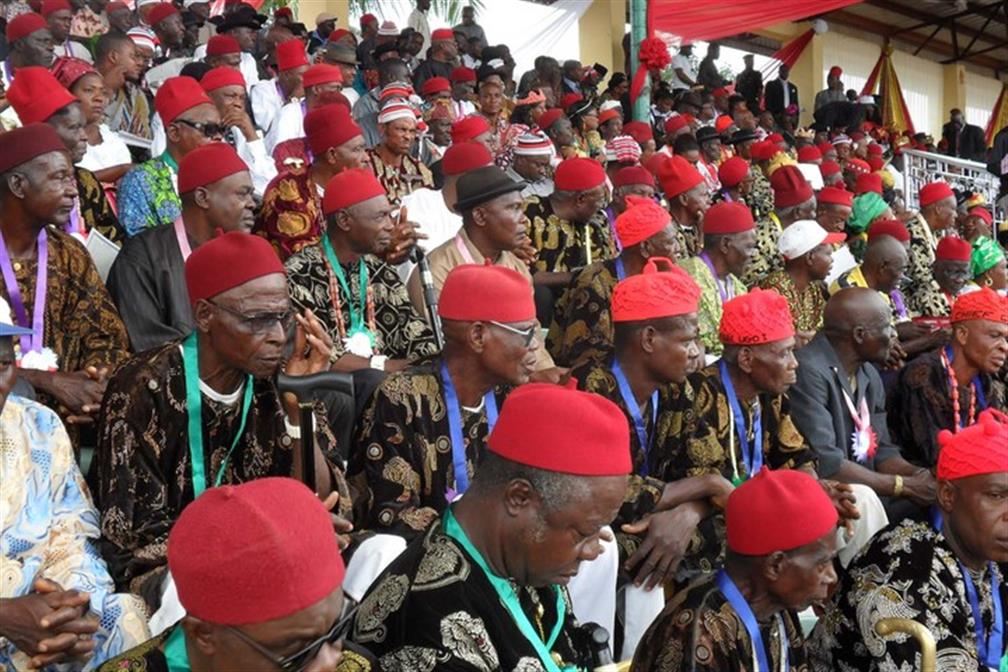Either Sam Omatseye, who writes weekly to keep in touch with the reality for The Nation newspaper, is suddenly out of touch with the bytes of the digital jungle, or the prospects of his flamboyant prose impelled him to damn the consequences of his vulgarly-titled piece on the Labour Party’s presidential flag-bearer, Peter Obi. It couldn’t have been just poetic license, that readymade immunity of every carefree writer, that inspired his choice of Obi-tuary—a double entendre that incited supporters of the politician and made him the target of their memes, rejoinders, and self-reported death threats—as the title of his unflattering column to deconstruct the former governor of Anambra State.

Wondering why there’s a sudden “quiet on the eastern front,” where the inhabitants are no longer “mooning over a yellow sun,” Omatseye wove sarcasm and courage to paint Mr. Obi as the new priest of the neo-Biafra agitators. The dark imagery is unmistakable, and not even the lyrical lilt of his thesis could dim the gravity of his charges. Anyone who had paid even faint attention to the conversations around Nigeria’s public discourse in this long parade to the polling units next year, would’ve easily established that Omatseye was bound for a partisan firing squad.

Barely twenty-four hours after the Obi-Dients, which is what Obi’s supporters call themselves, began to boo and harry him, he rushed to his Facebook to say, “Mr. Peter Obi, call your followers to order,” and that “They are issuing death threats. If anything happens to me, you will be held responsible.” He was neither drawn to wordplay nor the metaphorical gymnastics for which he’s well-known. He spelled out his fear in what’s perhaps the simplest prose he had ever written.
But Omatseye wasn’t the linguistic provocateur that invented Obi-tuary to parody the Obi-Dient movement. The pun had been flying around Nigeria’s cyberspace since Obi’s wind began to blow towards Aso Rock. The columnist was also not the first to theorize that a segment of the Obi-Dients was IPOB’s foot-solders in search of a new prophet. A notable social media user, who was once the hero of the folks who identify as the Obi-Dients today, propounded that theory but the backlash made his scandalous private life the topmost trend on Twitter for days. He sought reconciliation with the figureheads of the movement to manage the fallout, and it seems quiet on that front since then.
What Omatseye painted as eery quiet on the Eastern front ought to have been framed as the obituary of something different, something menacing—the long-endured political apathy in the South East or among the Igbo. For a sub-region or a group reluctant to be unreservedly in Nigeria’s bed since the tragedies of the 1960s, Obi’s emergence signals the wake of a desirable quiet, a quiet we must frame as the triumph of democracy over anarchy. And that thesaurus of insults to deconstruct him went beyond the borders of intellectual interrogation.
The surge in the recently-concluded PVC registrations across the South-East was not a mistake. The Igbo would’ve utilized their numerical power to determine the course of elections we had witnessed in Nigeria since the return to democracy if they had partaken in the electoral process as they tend to do today. And describing this triumph as “a switch of battle gear” is an invitation to this cyber-riot that’s forced Omatseye to flee to a bunker.
Obi has ignited the fire the late Chief Odumegwu-Ojukwu himself couldn’t in his call on the Igbo to give democracy a try, and, however Obi fares, the challenge upon the Nigerian state is to guarantee the place of these votes on the ballot papers next year. That the two biggest political parties in the country side-lined the South-East in their choices of candidates and running-mates for the 2023 presidential election was owed to past failed experiments around alliances with the Igbo. This is changing, and there’s no empirical reason to call it “Biafrans’… best revenge on the Nigerian state” or a gambit to “take over the zoo by acting as members of the zoo.”
Even if Nnamdi Kanu himself were Obi-Dient, that would still not be a scandal in a country where other documented terrorists and serial-killing bandits are pampered to lay down their arms or royally invited to the posh parlours of our elected public servants to discuss dubious amnesty programmes. The quiet on the eastern front couldn’t have been scarier than this episode, and Omatseye, who’s also a poet, should’ve merely mused over the hibernating function of the neo-Biafra as the inimitable Chris Okigbo said of “Silences”—that they “are Melodies… heard in retrospect.”
Neither Obi nor any politician introduced ethnicity and religion to our politics. We may weave fancy grammar to condemn ethnic or religious politics but the whole idea of a rotational presidency or “balanced ticket” is to legitimize such sectional or divisive politics. It’s not right, but this has been the practice. This didn’t begin today or from 1999; it’s the foundation upon which this mismanaged colonial start-up was built.
Aside from the 1999 and the 2007 presidential elections, Nigeria has never witnessed an electoral process that didn’t stir our ethnoreligious and regional fault-lines in the fashion manifesting today. There’s nothing unprecedented about the toxicity of these mutually-dispensed bigotries in the nation’s bids to choose Buhari’s successors. In 1999, when we held the first election of this Fourth Republic, the sectional sentiments were woven largely around two Yoruba politicians, Olu Falae and Olusegun Obasanjo. The 2007 presidential election, however, had three Northern Muslim politicians of the so-called “Hausa-Fulani” extraction—Umaru Yar’adua, Atiku Abubakar and Muhammadu Buhari—jostling to occupy Aso Rock.
In 2011, the sentiments around Buhari and Jonathan felt like an inter-religious war, and this was repeated even in 2015. Of course, some indifferent voters felt Jonathan was a victim of his ethnic origin and voted for him in sympathy in 2011, and others felt he had failed to live up to expectations and mobilized against him in 2015, but the religious, ethnic and regional cards flaunted were as unmistakable as the cards on our political desks today.
This dimension of our identity politics is frightening, but it’s not an unusual experience. This is also why some Igbo intellectuals have framed Omatseye, who’s Itsekiri, as pandering to practise his hatred of the Igbo, and there’s a historical context for this. It played out during the Biafra war when the rebel forces invaded the defunct Midwest and instigated, among the non-Igbo in the region, resistance to the Biafran occupation. It’s pointless to revise or play down history this recent. The rush to paint our present calamity as a first and the worst division of our democratic experiments is downright alarmism.
Of course, Omatseye retains his right to undersell any presidential candidate and lionize his favourite. But the threat of violence isn’t a tool of the intellectual. What we must welcome are the non-violent interrogations and caricaturing of his reasons, from the literal interpretation of his use of the word obi-tuary, down through the charge that he’s an over-glorified pretender who cites from books of quotable quotes to appear erudite, to his curious misgendering of Hannah Arendt in that controversial column.
Gimba Kakanda




















